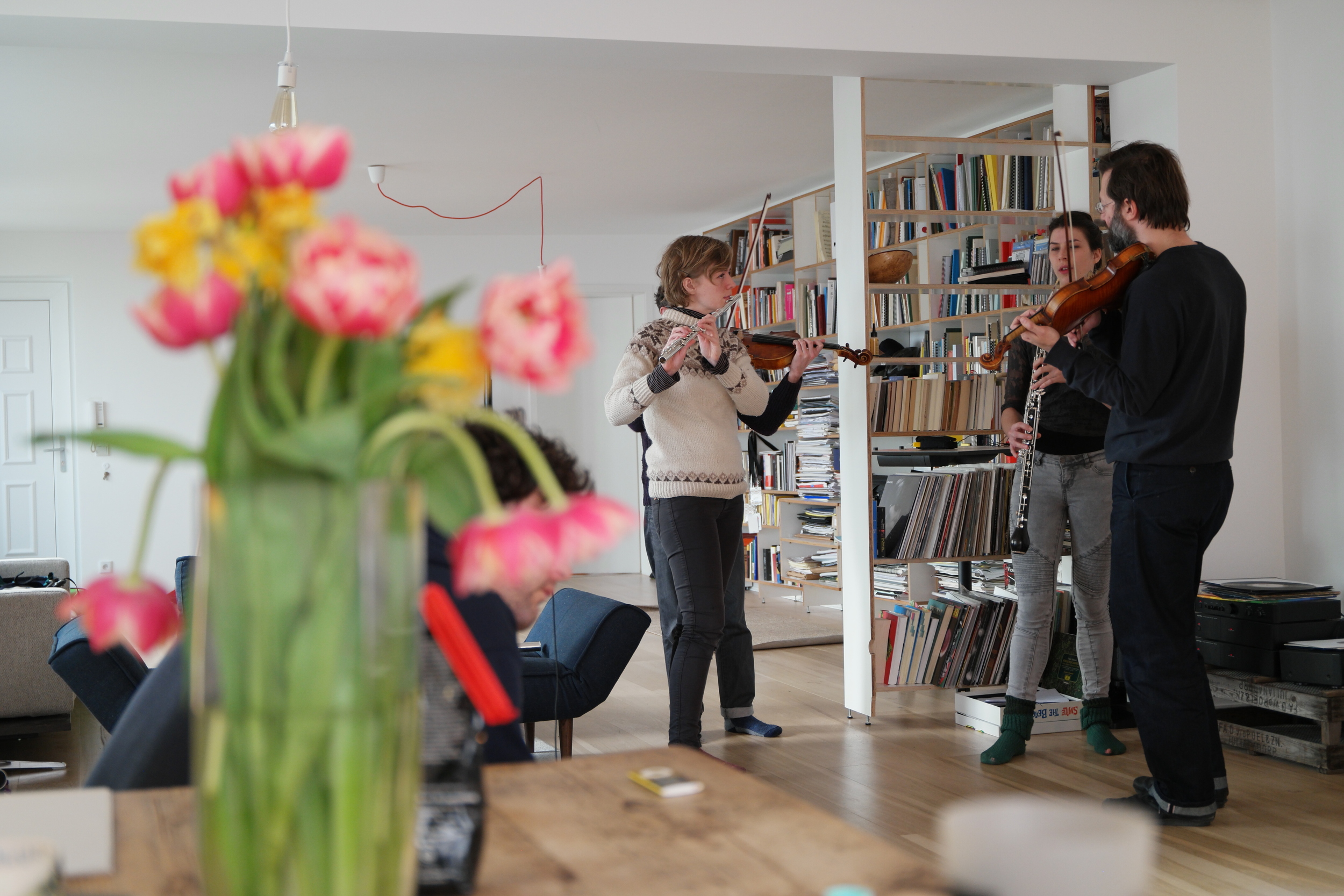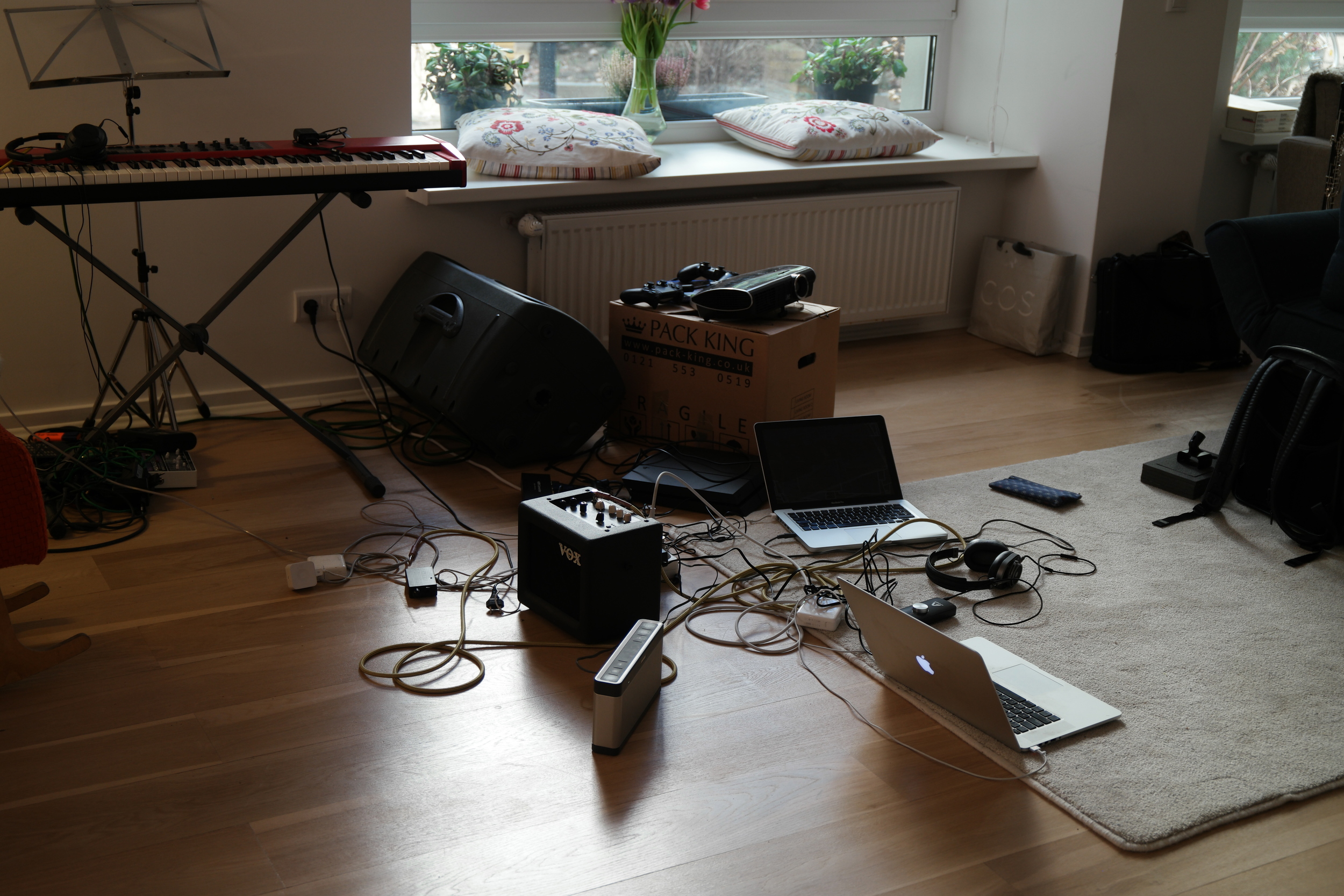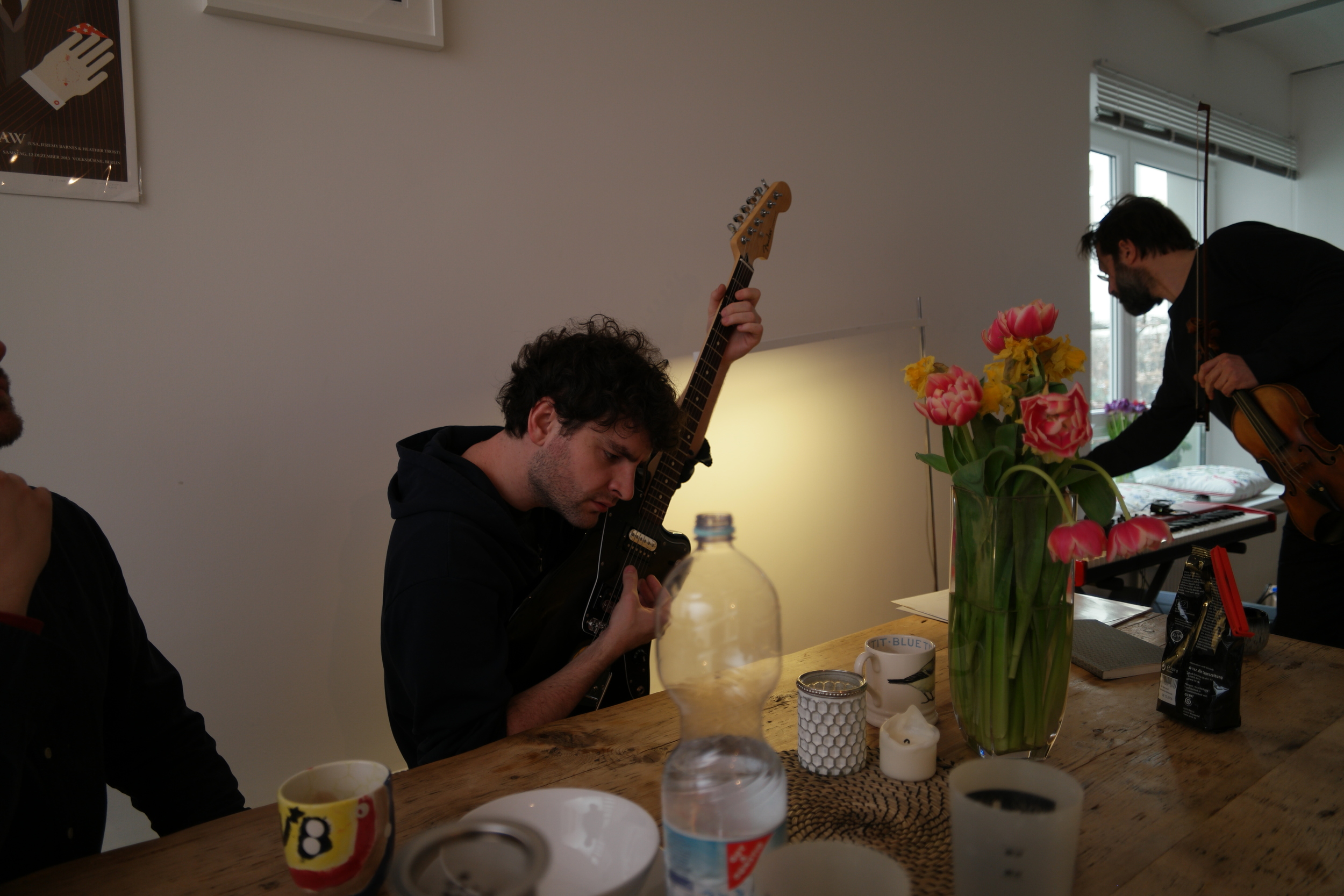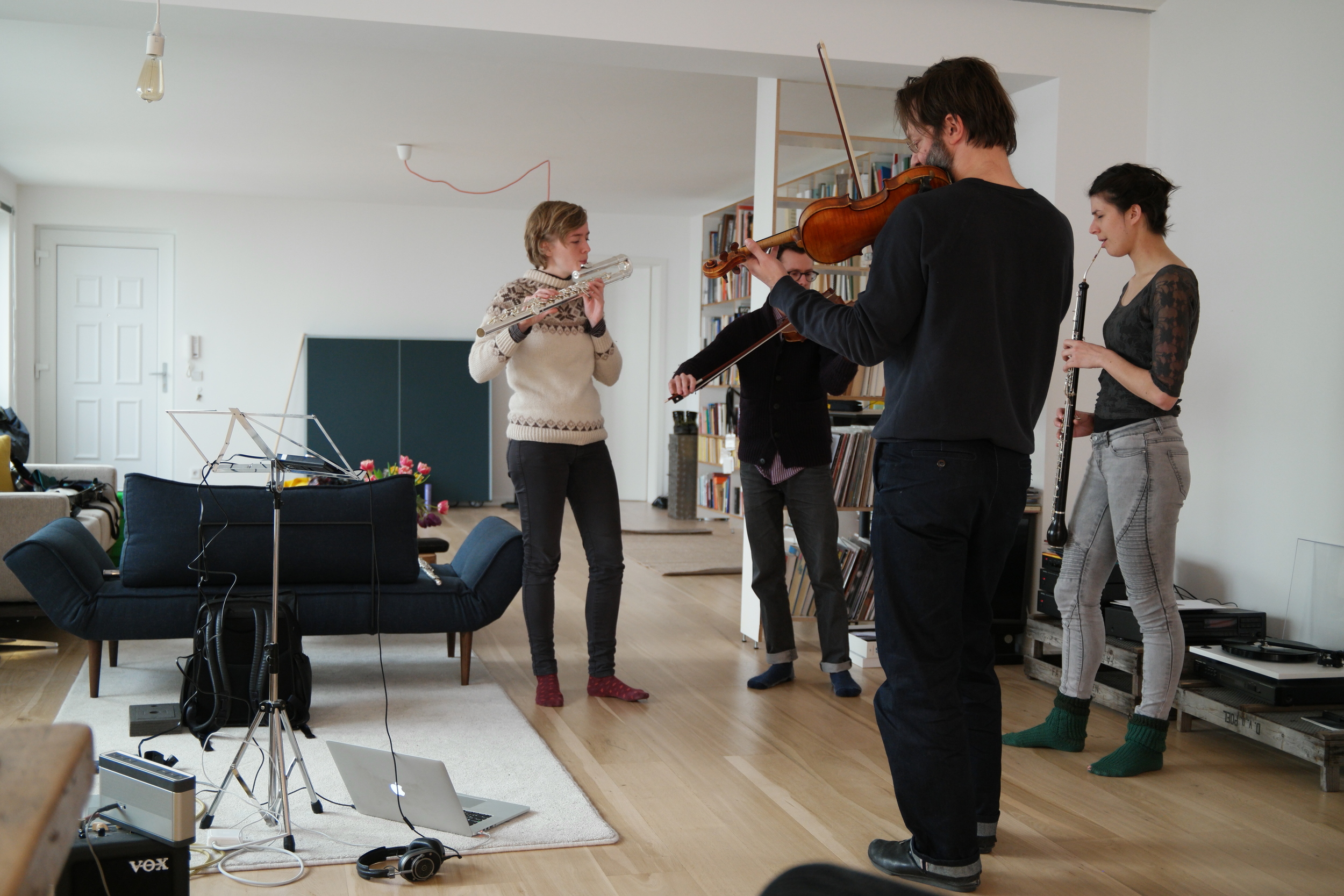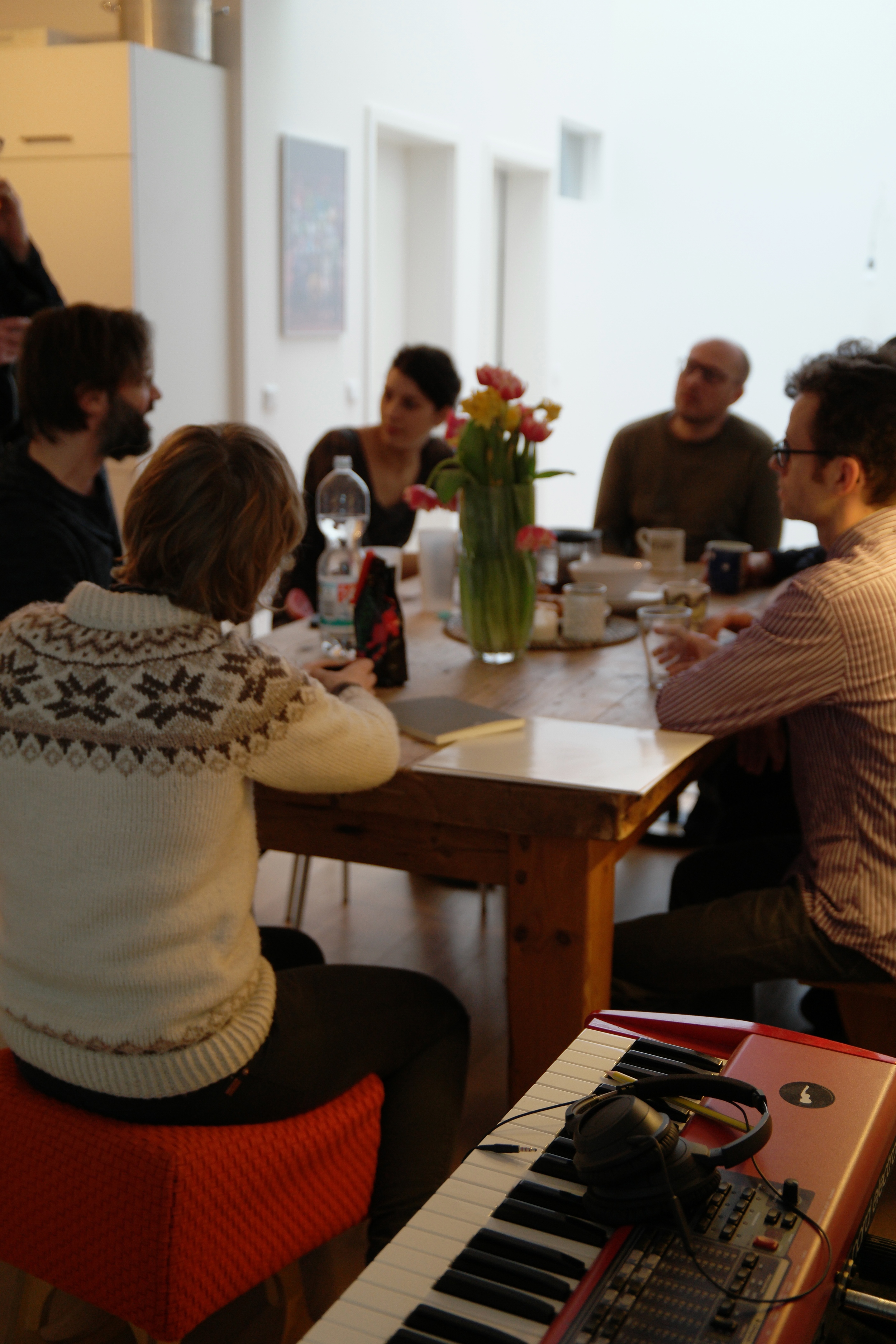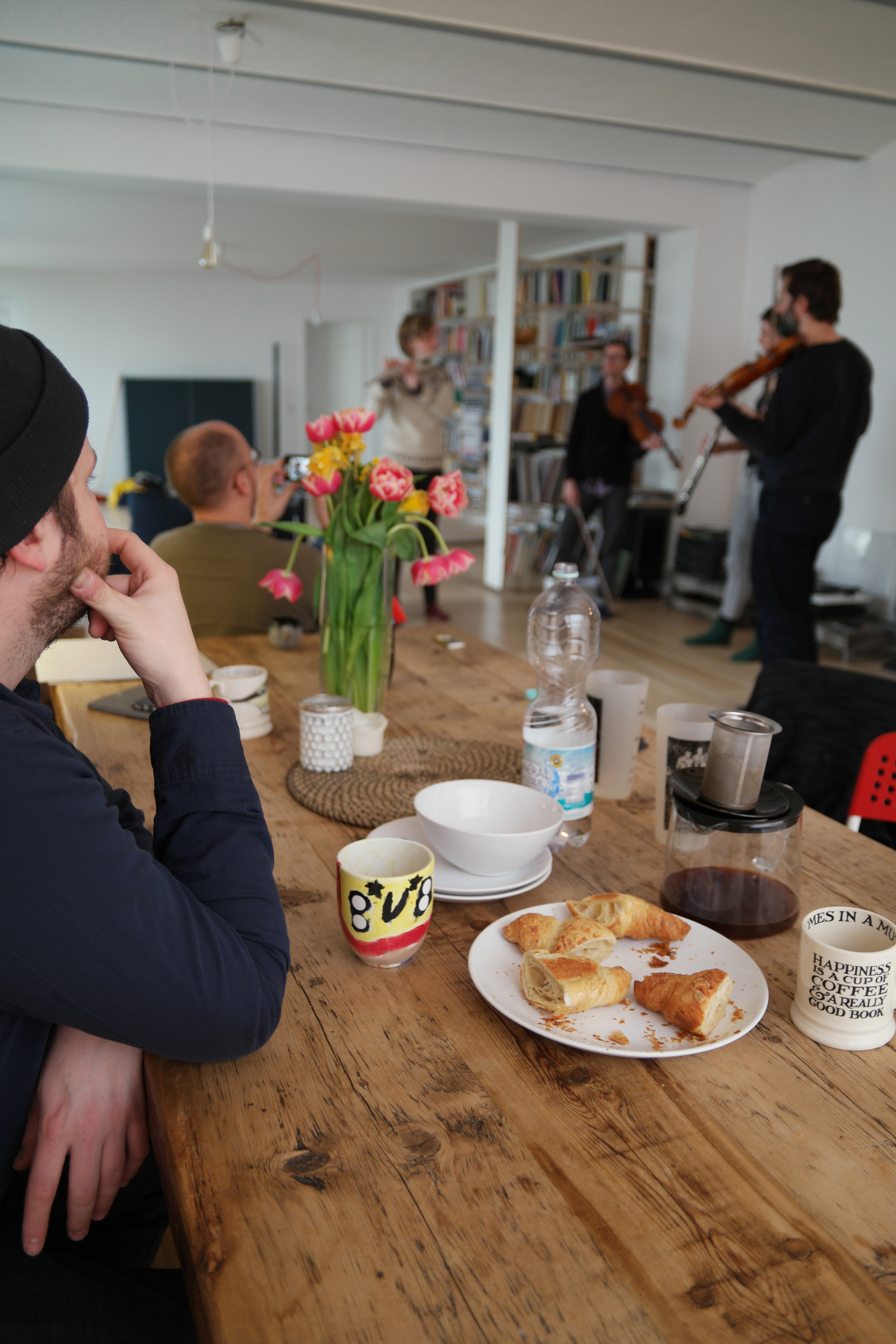by Trombonist/Composer Christopher Misch-Bloxdorf
As purveyors of contemporary chamber music with a growing and increasingly adventurous audience, we are wholeheartedly committed to the creation and cultivation of new and diverse types of music. An essential part of this process is providing bridges and context for new listeners to discover and appreciate what could sometimes be considered "challenging" music. Context that we will attempt (<—key word) to provide through our 'Extra-curricular Listening' blog series.
For each concert we will provide some extracurricular listening (or watching) and some rabbit holes for LM followers to excavate and discover their own exciting but perhaps obscure corner of the music world.
In preparation for next Tuesday's show at the James J. Hill Reference, composer/trombonist Chris Misch-Bloxdorf delves into the world of Saul Williams on the Mivos Quertet:
Blackalicious - Release
The first time I heard Saul Williams was on this track by Blackalicious. The song begins with a classic hip-hop track with a ‘boom bap’ figure that spurs on the rhythmic undulation provided by Blackalicious. The drumbeat dissipates into a mesmerizing collage of wind blowing through wind chimes while a quiet drum pattern fades in and out leading to a cello and synth dancing around melodies that provide a cohesive pattern in which Saul begins to speak over. The contrast between Blackalicious’ rapid fire verse and Saul’s slow and metamorphic poem gave me insight into the depth and diversity of the world of hip-hop.
Kronos Quartet - Howl, U.S.A.
The Mivos quartet are musical descendants of a long line of stringed avant-gardists - redefining traditional notions of the quartet in a very similar fashion to the prolific Kronos quartet. The Mivos quartet's collaboration with Saul Williams is reminiscent of the music written by Lee Hyla set to a reading of Allen Ginsberg’s iconic biography Howl. In a similar fashion, composer Ted Hearne will be setting music to Saul’s poem from his collection of poetry US(a.) entitled “the answer to the question that wings ask.” The goal of a composer in such a collaboration is to create a sonic landscape in which the words and music are reflective of one another capturing the mood and context of every syllable.
Vijay Iyer & Mike Ladd - Holding it Down: Veterans' Dream Project
In the rapidly developing catalog of music and spoken word collaborations, pianist Vijay Iyer and wordsmith Mike Ladd focus on providing veterans of recent conflicts an outlet through artistic expression specifically centralizing around narratives that have been inspired by US veterans’ dreams. One of the common threads of artists Ted Hearne, Jace Clayton, and Saul Williams is their commentary on social, economic, and political structures told through a narrative that teeters on the edge between fiction and non-.
Clipping - Midcity
Stalwart cast member of the revolutionary Broadway musical Hamilton, MC Daveed Diggs paired with producers William Hutson and Jonathan Snipes create the group known as Clipping. Clipping is a band that blends a world of complex noise-influenced production paired with Daveed’s virtuosic rhythmic stylings that never reach verbosity. Much of the music composed by Ted Hearne and Jace Clayton deals with the aesthetics of noise music, often coupling field recordings and a slew of samples to achieve their vision. This ties directly into Saul’s most recent release MartyrLoserKing, in which much of the production is an amalgam of field recordings from areas in Africa contextualized through modern alt-rock and hip-hop forms.
Sun-Ra - The Sub-Dwellers
Sun-Ra is arguably the most prolific figure in approaching music through the lens of Afrofuturism and often expressed these ideas through musical and verbal improvisations. Weary of any label that could potentially restrict the artistic process, Saul deals with his own constructs within Afrofuturistic ideals. In Saul’s most recent release MartyrLoserKing, he molds a universe that runs parallel to our own focusing on the life of a hacker from Burundi. This project utilizes repetition as an emphasis on an idea rather than the normative “hook” mentality. A phrase that generates power through repetition allows for the artist to adjust the drama of a piece leading to more spontaneous performances.
Def Jam Poetry - Saul Williams "Coded Language"
The Def Jam Poetry TV show influenced many young writers and artists. In the first season of the show, Saul is featured performing his piece “Coded Language”. This piece in many ways encapsulates Saul’s ideas of culture, all-encompassing Art, and fluidity of our individual trajectories. He challenges people to escape from the complacency of mediocrity that has been established by modern media outlets. This point is emphasized by a list of prolific contributors to culture that is used as a call to arms for the listeners. Saul’s view is one of optimism - he believes that collectively “we” understand the value of quality in art, but currently the “powers that be” are diluting our content. However, “we” are capable of creating and consuming art worthy of merit and Saul is reminding us that “we” are always evolving and can affect the expectation of quality on a daily basis.
The Rabbit Hole
Roc Marciano
Trent Reznor
Shabazz Palaces
Milo
Open Mike Eagle
Aceyalone (The Freestyle Fellowship)
Busdriver
Ambrose Akinmusire
Jay Electronica
Catch SAUL WILLIAMS AND THE MIVOS QUARTET LIVE AT THE JAMES J HILL REFERENCE LIBRARY TUESDAY, APRIL 26, 2016 AT 7:30PM
FOLLOW LIQUID MUSIC FOR UPDATES AND ANNOUNCEMENTS:
Twitter: @LiquidMusicSPCO (twitter.com/LiquidMusicSPCO)
Instagram: @LiquidMusicSeries (instagram.com/liquidmusicseries)
Facebook: www.facebook.com/SPCOLiquidMusic/
Follow Saul Williams:
saulwilliams.com
@SaulWilliams
Follow Chris Misch-Bloxdorf:
chrismisch-bloxdorf.bandcamp.com






